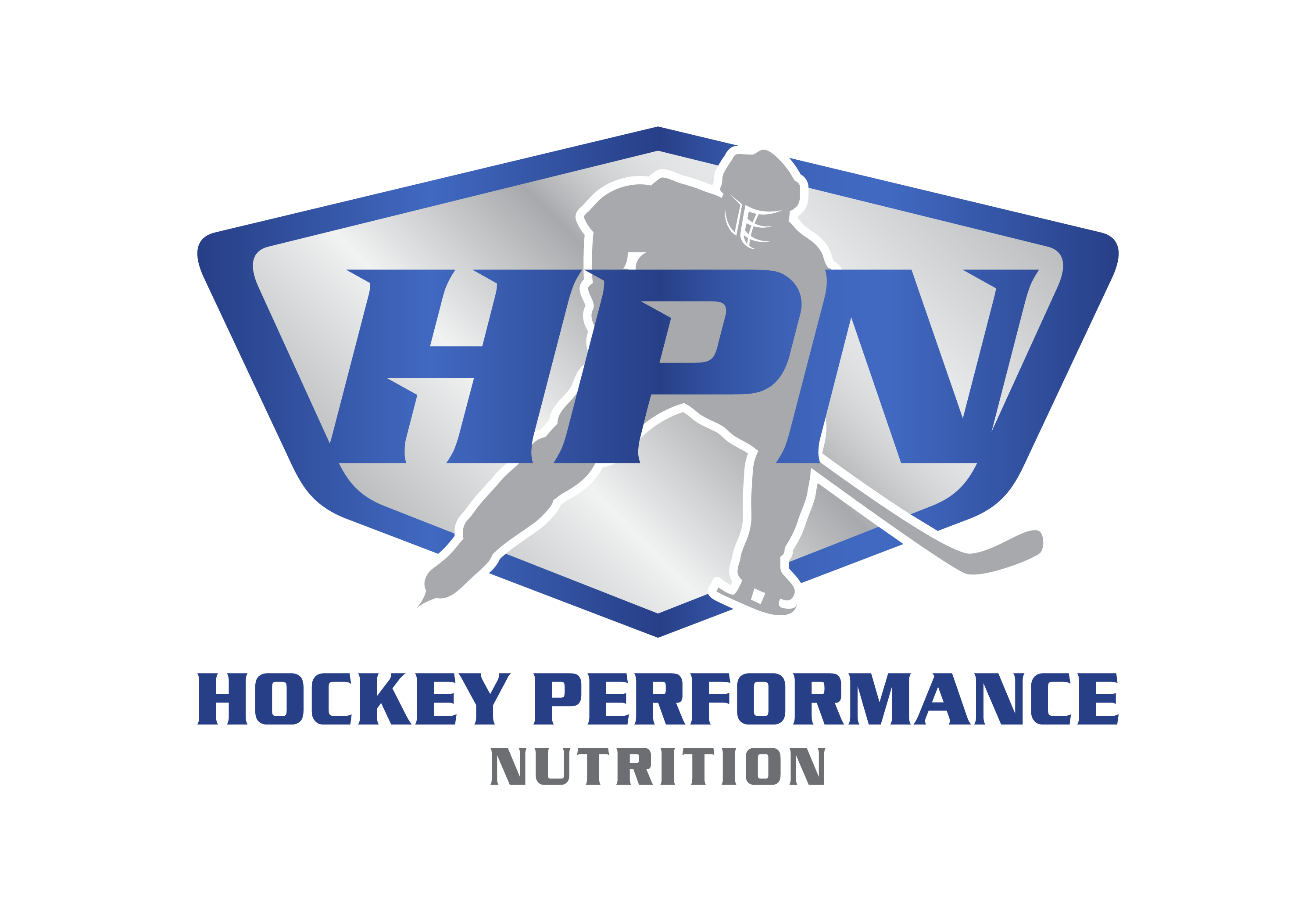Parents Mean Well… But There’s a Catch
It’s no surprise — parents want to help.
When they hear “healthy eating,” they think about what they do to stay in shape: cutting carbs, piling on protein, skipping meals, going keto, intermittent fasting, or eating light in the evenings.
But here’s the problem:
What works for a 40-year-old trying to lose 15 pounds is the opposite of what a growing hockey player needs to fuel performance, recovery, and development.
Why The Parent Diet Doesn’t Work For Hockey Players
1. Hockey Players Burn Far More Energy
A youth hockey player can burn 500–1,000+ calories in a single practice or game — on top of what they need just to grow and get through a normal day. Restricting calories like many adult diets do leaves them underfueled, slower on the ice, and struggling to recover before the next workout, practice or game.
2. Carbs Are Hockey’s Primary Fuel
Carbs are the main energy source for explosive skating, quick transitions, and sustaining high-intensity shifts through an entire game or practice. Low-carb diets may work for adults trying to lose weight, but for hockey players, they lead to early fatigue, slower recovery, and reduced performance.
3. Recovery Starts Immediately After The Final Whistle
Many parents skip late-night meals, but for hockey players, the post-game or post-practice window is critical for muscle repair and restoring glycogen stores. Missing this window means showing up to the next practice or game at less than 100%.
4. Growth Requires Extra Fuel
Players aren’t just maintaining their bodies — they’re building them. That means they need enough calories and nutrients to support lean muscle, bone strength, and healthy hormone function on top of their on-ice performance demands.
The Wrong Advice Can Hold Your Player Back
In today’s world, nutrition tips are everywhere — and not all of them are worth listening to.
Youth hockey players often get advice from:
- YouTube and Instagram Influencers who have never played hockey
- Players From Other Sports with completely different fueling demands
- Coaches repeating what they did “back in the day,” even though the game (and science) has changed
- Personal Trainers who understand strength training and weight loss but not the unique demands of hockey
- Well-Meaning Friends or Parents who follow diets meant for weight loss or bodybuilding
Here’s The Problem:
Hockey is a high-speed, high-endurance, stop-and-go sport — and it’s even more demanding for growing players. Advice meant for a bodybuilder, a football player, or a weight-loss client won’t translate.
In fact, it can leave players underfueled, sluggish, and more prone to injury.
Your player needs a plan built for hockey — one that accounts for their age, training schedule, and long-term development goals. Anything else is just guessing.
What Hockey Fueling Should Look Like Instead
- Consistent Eating – 3 full meals + 2–3 snacks every day, even on off days
- Carb-Focused Before And After Training – pasta, rice, oats, fruit, and whole grains
- Balanced Recovery Snacks – protein + carbs within 30 minutes after games/practices
- Healthy Fats For Hormone Support – avocado, nuts, olive oil, nut butters
- Hydration As Part Of The Plan – not an afterthought
Bottom line
Parents, your diet is designed for your goals. Your hockey player’s diet needs to be designed for theirs.
If you try to match them to your own eating habits, you might unintentionally slow their progress, hurt their recovery, and hold back their performance.
Fuel them for their game, not yours.
Your Player’s Edge Starts Here.
From full 1-on-1 custom coaching to the game-tested systems inside Playbook Pro and Playbook Elite, we’ve got a program to fit every hockey family.
🏒 Get started at HockeyPerformanceNutrition.com and take the guesswork out of fueling.
About the Coach
Terry Knealing is a Certified Strength and Conditioning Coach, Sports Performance Nutritionist, and USA Hockey Level 4 Coach with a passion for helping serious hockey players reach the next level.
As the founder of Hockey Performance Nutrition (HPN), Terry has worked with hundreds of athletes — from youth to pro — to create fueling strategies that maximize on-ice performance, speed recovery, and support long-term development.
With decades of coaching experience and a proven track record in elite sports performance, Terry’s programs go beyond generic advice. Every plan is built to fit the unique demands of hockey, the schedule of real hockey families, and the goals of each individual player.

